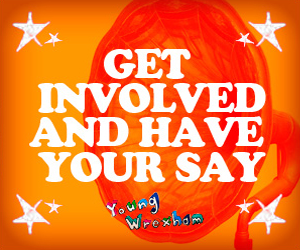Domestic abuse is never acceptable
Whatever form it takes, domestic abuse is rarely a one-off, and should instead be seen as a pattern of abusive and controlling behaviour through which the abuser seeks power over their victim. Domestic abuse happens across society, regardless of age, gender, race, sexuality, wealth or the area in which you live.
It is important to realise that you may not know you are with someone who is abusive recognising this can sometimes be a slow process. It may start with your partner choosing what you wear when you go out or who you see when you go out, what friends you hang around with or whether you go out at all.
Abusive relationships can includeextreme jealousy, lack of intimacy, sexual coercion, infidelity, verbal abuse, threats, lies, broken promises, physical violence, power plays and control games.
Abuse does not have to be physical.
Emotional abuse is as damaging as physical abuse, though it is often harder to recognize, and therefore to recover from. Emotional abuse causes long term self esteem issues and emotional effects for the partners of abusers. Sometimes the abuser will declare undying love and promises that they will change, giving the person hope that the abuser can change so they stay in the relationship.
Abusive relationships are progressive -
Abusive relationships get worse over time. Emotional and verbal abuse frequently shifts to more overt threats or physical abuse, particularly in times of stress. Abusers are generally very needy and controlling; the abuse escalates when they feel they may lose their partner, or when the relationship ends.
You may be in an abusive relationship if he or she:
- Is jealous or possessive toward you.
- Tries to control you by being very bossy or demanding.
- Tries to isolate you by demanding you stop going out or seeing your mates.
- Is violent and / or loses his or her temper quickly.
- Pressures you sexually, demands sexual activities you are not comfortable with.
- Blames you when he or she mistreats you.
- You frequently worry about how he or she will react to things you say or do.
- Makes "jokes" that shame, humiliate, demean or embarrass you, weather privately or around family and friends.
Trust. Trust is vital to any relationship, it’s OK to get a little jealous sometimes, jealousy is a natural emotion. But how a person reacts when feeling jealous is what matters. There's no way you can have a healthy relationship if you don't trust each other.
Honesty. This one goes hand-in-hand with trust because it's tough to trust someone when one of you isn't being honest. If you find yourself telling your partner lies, ask yourself why.
Good communication along with trust and honesty is important. Talking openly to each other and ensuring you both understand each other is great within a relationship. Never keep a feeling bottled up because you're afraid it's not what your partner wants to hear or because you worry about sounding silly.
Support. It's not just in bad times that your partner should support you. In a healthy relationship, your partner is there with a shoulder to cry on through the bad times and someone to celebrate with during the good times.
Friends. Don’t forget your friends. At the beginning of a relationship you spend all your free time with your partner forgetting about everyone else. You choose your mates for a reason so don’t forget about them, they will be there to support you should anything go wrong. It is also important to spend time with your friends, you have plenty of time to spend with you partner.
Fairness/equality. You need to have give-and-take in your relationship too. Do you take turns choosing what you will be doing at the weekends? Do you hang out with each others mates equally?
Being Yourself. In a healthy relationship, everyone needs to make compromises. It’s great being in a relationship but remember you had your own life before the relationship, it important not to forget about your family and friends.
Don’t feel like you are alone. Here are some details of places where you can get support.
http://thisisabuse.direct.gov.uk/








